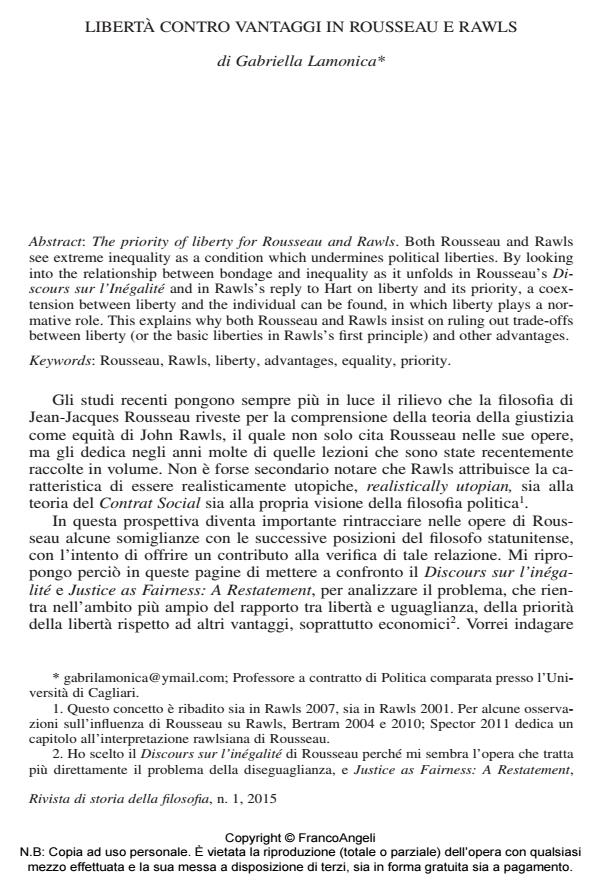Llibertà contro vantaggi in Rousseau e Rawls
Titolo Rivista RIVISTA DI STORIA DELLA FILOSOFIA
Autori/Curatori Gabriella Lamonica
Anno di pubblicazione 2015 Fascicolo 2015/1
Lingua Italiano Numero pagine 13 P. 79-91 Dimensione file 557 KB
DOI 10.3280/SF2015-001007
Il DOI è il codice a barre della proprietà intellettuale: per saperne di più
clicca qui
Qui sotto puoi vedere in anteprima la prima pagina di questo articolo.
Se questo articolo ti interessa, lo puoi acquistare (e scaricare in formato pdf) seguendo le facili indicazioni per acquistare il download credit. Acquista Download Credits per scaricare questo Articolo in formato PDF

FrancoAngeli è membro della Publishers International Linking Association, Inc (PILA)associazione indipendente e non profit per facilitare (attraverso i servizi tecnologici implementati da CrossRef.org) l’accesso degli studiosi ai contenuti digitali nelle pubblicazioni professionali e scientifiche
Both Rousseau and Rawls see extreme inequality as a condition which undermines political liberties. By looking into the relationship between bondage and inequality as it unfolds in Rousseau’s Discours sur l’Inégalité and in Rawls’s reply to Hart on liberty and its priority, a coextension between liberty and the individual can be found, in which liberty plays a normative role. This explains why both Rousseau and Rawls insist on ruling out trade-offs between liberty (or the basic liberties in Rawls’s first principle) and other advantages.
Parole chiave:Rousseau, Rawls, liberty, advantages, equality, priority.
Gabriella Lamonica, Llibertà contro vantaggi in Rousseau e Rawls in "RIVISTA DI STORIA DELLA FILOSOFIA" 1/2015, pp 79-91, DOI: 10.3280/SF2015-001007